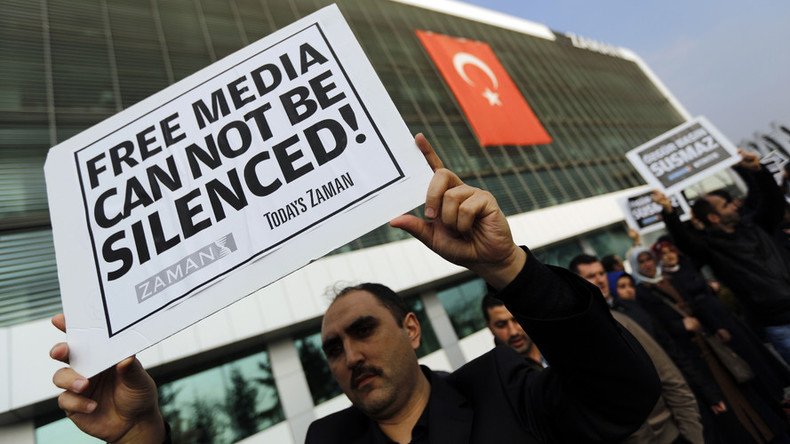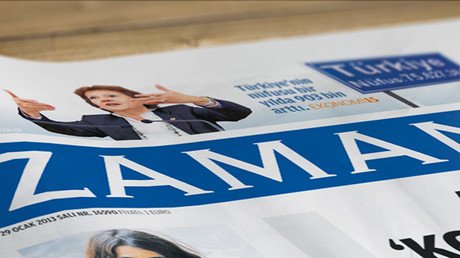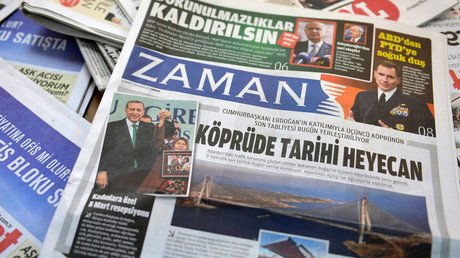Journalists of Turkish newspaper 'feel like captives' after government seizure, sales drop 99%

Sales of Zaman, the Turkish opposition newspaper that was taken over by the government last week, have reportedly nosedived from 650,000 to 6,000 a day. Journalists say they “feel like captives” at work, with police keeping close tabs on them 24/7.
Turkish authorities took control of Zaman last Friday by appointing new trustees for the Feza Media Group, which owns the paper. Police also raided Zaman’s offices to enforce a Turkish court order stating that the media outlet must be brought under government authority. The newspaper’s editor-in-chief, Abdulhamit Bilici, was fired soon after. Turkish police didn't hesitate to employ tear gas, water cannon and rubber bullets to disperse hundreds of Zaman supporters in Istanbul, protesting what they perceive as a government crackdown on freedom of the press.
Since the seizure, the paper has turned into a government mouthpiece, with the front page of Sunday's edition of Zaman (the first under new ownership) immediately bearing an image of President Recep Tayyip Erdogan.
“It is like the paper died on Friday night and was resurrected in a different body on Saturday,” Mustafa Edip Yilmaz, the paper's foreign editor, told the Times. “Every day we produce editions and they are not sent to the printing presses. The editorial line, the stories, the pictures, the front page — sometimes they are changed partly, sometimes completely.”
“We feel like captives in our own workplace,” said Yilmaz. “We can’t communicate openly with our colleagues when there are police everywhere. We leave the building the first second after our shifts end.
“How are we supposed to continue being journalists?” he asked rhetorically.
Today’s Zaman, the popular English-language edition, no longer runs its critical opinion columns. “On Sunday the new administrators told our managing editor that they do not want any stories that ‘defame Turkey’ in the paper,” Sevgi Akarcesme, editor-in-chief, told the Times. “For them, ‘defaming Turkey’ means ‘defaming the government,’” he added.
The journalists predict that the paper is doomed to stop publishing within weeks.
Human rights groups and politicians slammed the Turkish government, characterizing Zaman's seizure as a violation of press freedom.
“He who wants to join the European Union must support freedom of expression, freedom of the press and must tolerate criticism,” German Green Party chief Cem Oezdemir, a descendant of Turkish migrants, told Reuters.
The government takeover of Zaman newspaper is the "latest deeply troubling episode in the Turkish authorities’ ongoing onslaught on dissenting media," Amnesty International said.
As always, Ankara has dismissed the accusations, claiming that its actions were aimed at investigating the illicit financing of what it describes as a “Gulenist terror group.” Turkish Prime Minister Ahmet Davutoglu had already described Zaman’s activities as “an operation targeting a legitimate government that came to power with popular support,” referring to the paper’s affiliation with the now US-based cleric Fethullah Gulen, a vocal critic of Erdogan who was put on a “most-wanted terrorist list” by the Turkish government.















